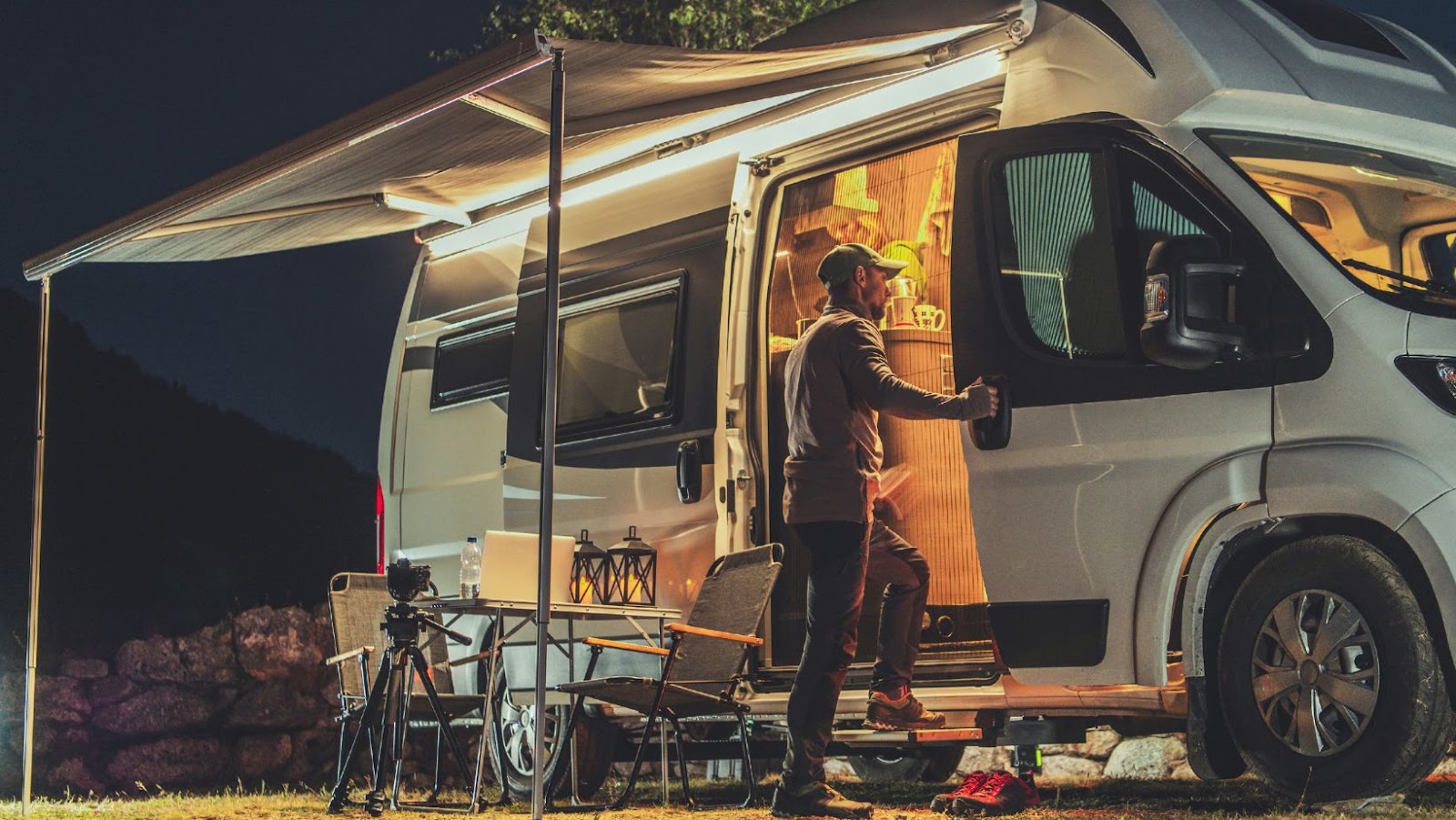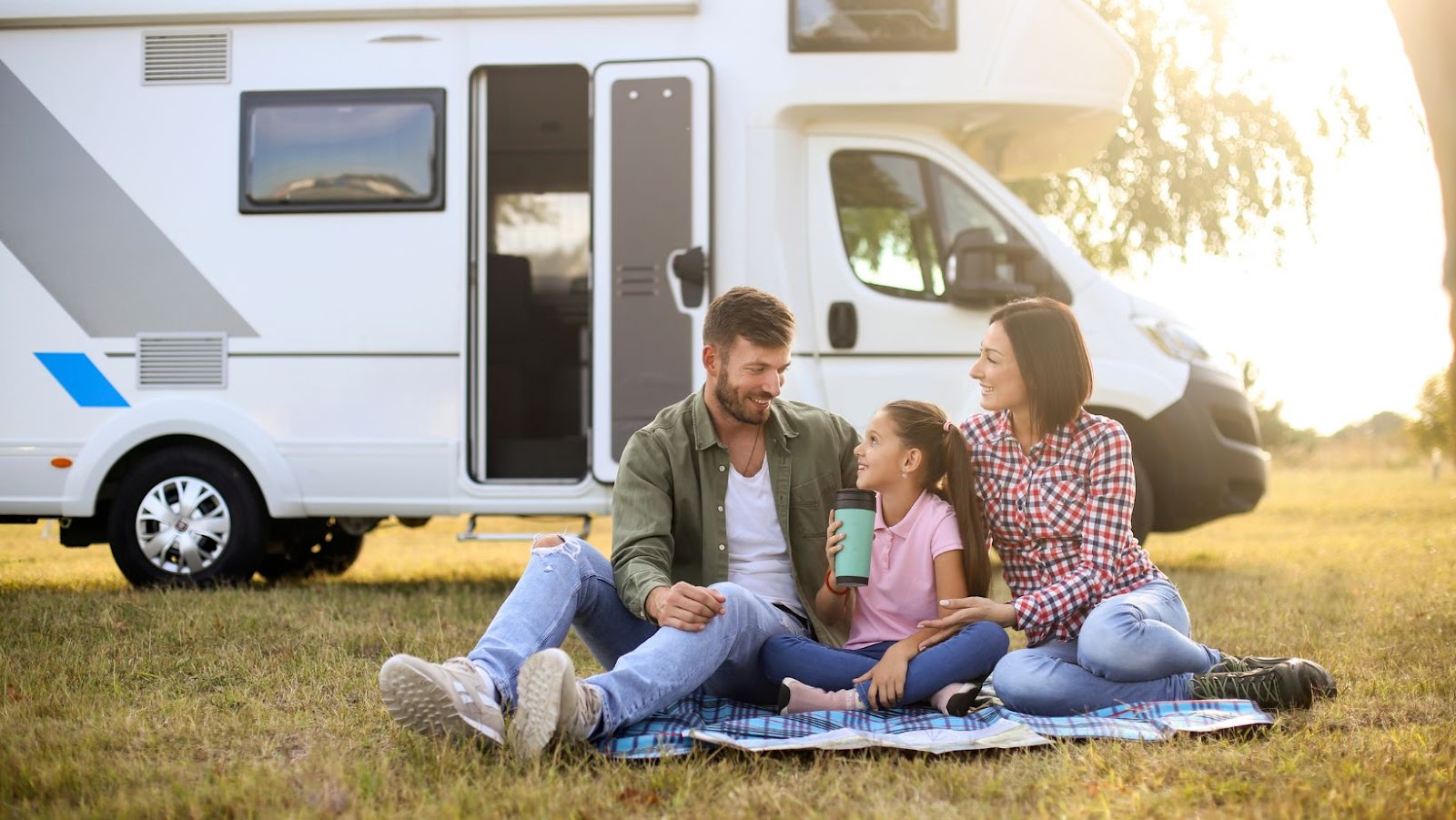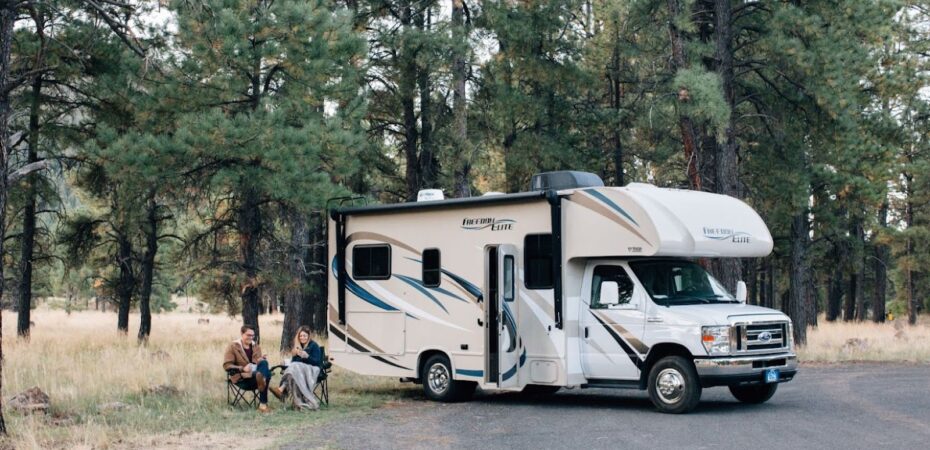Are you planning to embark on your first RV adventure? RVing is a great way to explore the world around you without giving up the comfort and convenience of your own home. However, if you are new to RVing, it can be daunting to prepare for your first trip.
Here are some tips to help you get ready for your first RV experience.
Choose the Right RV
Choosing the right RV is one of the most important decisions you will make when preparing for your first RV trip. There are many different types of RVs available, each with its own set of features and benefits. Take some time to research the different options and choose an RV that best suits your needs.
One of the first things to consider is your budget. RVs can range in price from a few thousand dollars to hundreds of thousands of dollars. Determine how much you can afford to spend and look for an RV that fits within your budget. Another important factor to consider is the size of your traveling group. If you are traveling alone or with a partner, a small camper van may be sufficient. However, if you are traveling with a large family or a group of friends, you may need a larger RV with multiple sleeping areas and more amenities. The type of terrain you will be driving on is also an important consideration.
For example, if you plan to do a lot of off-road driving, you will need an RV with a higher ground clearance and four-wheel drive capabilities. On the other hand, if you plan to stick to paved roads and highways, a standard motorhome may be sufficient. Once you have narrowed down your options, make sure to read reviews from other RV owners. Look for reviews on websites such as RV forums, social media groups, and manufacturer websites. These reviews can provide valuable insights into the pros and cons of different RV models, as well as tips and tricks for RVing.
Practice Driving Your RV
Driving an RV can be intimidating, especially if you have never driven a large vehicle before. In addition, RVs are much larger and heavier than cars, which can make them more difficult to maneuver and control. That’s why it’s important to practice driving your RV before you hit the road.The first step in practicing driving your RV is to find an empty parking lot or a quiet street where you can get used to the size and feel of the vehicle.

Start by practicing basic maneuvers such as accelerating, braking, and turning. Then, pay attention to how the RV handles, how much space it takes up on the road, and how long it takes to come to a stop.Once you feel comfortable with the basic maneuvers, it’s time to start practicing more advanced skills such as backing up and turning around. These skills are particularly important when navigating tight spaces such as RV parks and campsites.
When practicing backing up, use a spotter to help guide you. The spotter should stand behind the RV and provide guidance on when to turn the wheel and when to stop. When turning around, practice using the RV’s mirrors to help you see your surroundings. Try to practice driving your RV on different types of roads, including local streets and highways. Pay attention to the RV’s speed, handling, and visibility. Remember that RVs take longer to stop than cars, so you should always maintain a safe following distance.
Pack Wisely
Packing wisely for your RV trip is essential to ensure that you have everything you need while still leaving enough space for comfortable living in your RV. Since you’ll be carrying all of your possessions with you on the trip, it’s important to pack only the essentials and think carefully about what you’ll need
Before you start packing, consider the climate and terrain you’ll be traveling through. If you’re traveling to an area with changing weather conditions, make sure to pack clothes appropriate for both warm and cold weather. If you plan to hike or participate in outdoor activities, pack comfortable shoes, hats, and protective clothing.
When it comes to food, make sure to pack non-perishable items that can last throughout your trip. Consider bringing a portable grill or a camping stove to cook food on the road. Of course, you will need to ensure you have the correct gas supply for any cooking equipment you bring. Services such as Nelson Propane (https://nelsonpropane.com/) can help with cylinders, tanks, and related accessories that you may need for this. It’s also always a good idea to pack snacks and drinks to keep you fueled throughout your journey.
Don’t forget to bring a well-stocked first aid kit on your trip. This should include basic supplies such as bandages, antiseptic ointment, and pain relievers. Make sure to include prescription medications and any other personal medical supplies that you may need.
Other road trip essential items to pack include sunscreen, insect repellent, flashlights, and batteries. Don’t forget to bring towels, bed linens, and pillows for your comfort. Make sure to bring maps, GPS devices, and cell phones to stay connected and informed on the road.
Plan Your Route
Taking the time to plan your route will help you avoid any potential hazards and ensure that you have a comfortable and enjoyable journey. The first step in planning your route is to decide on your destinations. Think about the places you want to visit and how much time you have for your trip.

Consider how far you want to travel each day and how much time you want to spend at each destination. Once you have a general idea of your itinerary, you can start planning your route. Consider the roads you will be taking – some roads may not be suitable for RVs, especially those with low bridges or steep hills. Research your route in advance and make sure to choose roads that are RV-friendly. You can use online mapping tools that offer RV-specific routing to help you plan your route.
Try to plan your stops in advance. This includes where you will stay overnight and where you can refill your water and gas tanks. Research RV parks and campgrounds along your route and make reservations in advance, especially if you are traveling during peak season. Make sure to check if the RV park or campground offers amenities such as electricity, water, and sewage hookups.
Familiarize Yourself with RV Systems
Before setting out on your RV adventure, it’s essential to familiarize yourself with your RV’s systems. This includes the electrical, water, and sewer connections, as well as the propane, heating, and cooling systems, and the toilet and shower. Read your RV’s owner manual and learn about the different systems and how they operate. Practice setting up and taking down your RV’s awning and leveling your vehicle. This will help you save time and frustration when setting up camp.
When it comes to hooking up water, sewer, and electrical connections, it’s important to understand the steps involved and ensure that you have the necessary equipment. Before you leave, test all of the RV’s systems to make sure everything is working correctly. It’s also essential to familiarize yourself with your RV’s propane system, which provides fuel for your stove, refrigerator, and heater. Learn how to check the propane levels, how to properly turn the system on and off, and how to safely refill propane tanks.
It’s crucial to know how to operate your RV’s heating and cooling systems. Learn how to adjust the thermostat, and how to use fans and vents to circulate air. Make sure to understand how to use the toilet and shower in your RV. Also, learn how to properly fill and empty the water tank and waste tanks, and how to maintain the systems to prevent issues from arising.
Be Prepared for Emergencies
You never know when something unexpected might happen, and being prepared can help you stay safe and avoid potential problems. Here are some tips for being prepared for emergencies on your RV trip.
Bring a Toolkit
It’s a good idea to have a basic toolkit on board, including tools such as screwdrivers, pliers, wrenches, and a hammer. These tools can come in handy if you need to make minor repairs on your RV.
Jumper Cables and Spare Tire
Flat tires and dead batteries can happen when you least expect them. Be sure to carry a spare tire and jumper cables so that you can quickly fix any issues and get back on the road.
Fire Extinguisher and Carbon Monoxide Detector
It’s important to have a fire extinguisher on board in case of a fire. In addition, you should have a carbon monoxide detector to ensure that you are not exposed to this dangerous gas.
Backup Power Source
In case of a power outage, it’s a good idea to have a backup power source. For example, a generator or solar panels can provide electricity to your RV, allowing you to continue using appliances and charging devices.
Cell Phone and Backup Battery
Make sure you have a working cell phone with you on your trip. It’s also a good idea to have a backup battery or charger in case your phone runs out of power.
Conclusion
Preparing for your first RV experience can be exciting and daunting at the same time. But with proper planning and preparation, you can enjoy a fun-filled and stress-free trip. Choosing the right RV, practicing driving, planning your route, packing wisely, familiarizing yourself with RV systems, and being prepared for emergencies are crucial steps to ensure a successful RV adventure.
Before setting out on your trip, take the time to research and plan ahead. This will help you make the most of your trip and avoid any unexpected surprises. Remember to pack only the essentials and to familiarize yourself with your RV’s systems before hitting the road.
By following these tips and tricks, you’ll be well on your way to an unforgettable RV experience. Whether you’re traveling solo or with family and friends, an RV adventure is an excellent way to explore new places, bond with loved ones, and make lasting memories.
So, get ready to hit the road and enjoy your first RV experience!


 By
By 





